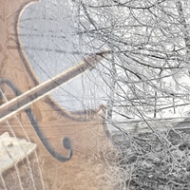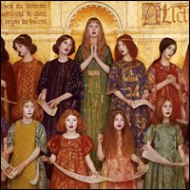Revisiting a startling discovery from the Radio Chopin series…
Take a listen to Chopin’s A Stranger Here Himself…
“A stranger I came, A stranger I depart…” These opening lines of “Good Night”, the first song in Franz Schubert’s cycle, Winterreise, or Winter Journey resonated with Chopin. So much so that they spilled over into the manuscript for his Sonata for Cello and Piano.
A dead ringer, so to speak! In Schubert’s song cycle the anti-hero is a dying poet. Themes of banishment, lost love and icy despair pervade. Just as they did in Chopin’s life at the time he composed his Cello Sonata. It was winter. His health was in rapid decline. He was twice exiled: he’d left his native Poland for good, and George Sand had just evicted him from their nest with the publication of an exposé thinly-veiled as a work of fiction.
Which brings us back to the first movement of Chopin’s Cello Sonata. It’s problematic. It puzzled even his closest allies. Was it too intimate? Wasting in his deathbed, Chopin asked to hear it, only to find he could bear no more than the first few measures. He omitted the movement from the sonata’s 1848 premiere. Clearly, it had profound personal significance. Most likely because he turned to—and quoted—Schubert’s song at the time of his separation from George Sand, which she had publicly portrayed as entirely his fault. Was it regret? Or, as in the final stanzas in Schubert’s song, did the ailing Chopin recognize his fate was sealed?
These are the last words spoken
Soon I’ll be out of sight
A simple farewell message
Goodnight, my love, good night.



